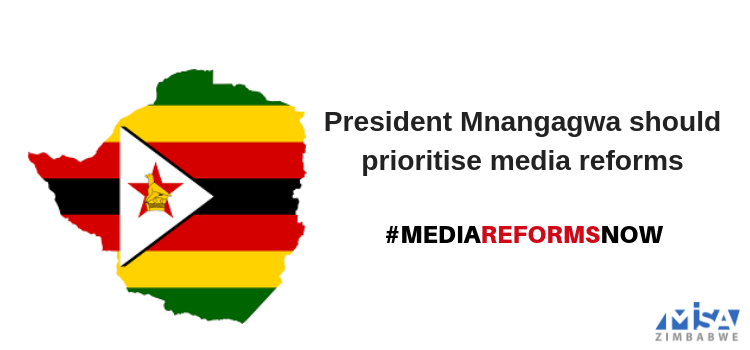Journalists, media practitioners and representatives of media organisations have implored President Emmerson Mnangagwa to prioritise implementation of the long overdue media reforms following his inauguration as the new Zimbabwean leader.
In a communiqué issued on 7 September 2018 in Harare at the end of the Post-2018 Elections Media Conference organised by MISA Zimbabwe in partnership with the Konrad Adenauer Stiftung, delegates resolved to maintain and sustain pressure on the need for media law and policy reforms.
Delegates said President Mnangagwa should be guided by the findings and recommendations of the government-sanctioned 2014 Information and Media Panel of Inquiry (IMPI). Other key resolutions pertained to the assault of local and foreign journalists by soldiers during the violent demonstrations that rocked Harare on 1 August 2018.
The conference also resolved to address reports of corruption in the media to protect the profession’s integrity and professionalism.
Delegates agreed on the need to promote the participation of women in the media industry’s decision making processes and to ensure they are remunerated equally with their male colleagues.
The issue of how best to deal with journalists who seek public office by participating in elections and then easily return to the newsroom upon losing as witnessed in the 2018 elections, was also subjected to intense debate. (Refer to conference resolutions).
Meanwhile, in his opening remarks, MISA Zimbabwe Chairperson Golden Maunganidze said media reforms were critical given the essential role played by a free and unfettered media in the democratisation process.
“The next five years and beyond, cannot be business as usual without the envisaged reforms. Paradoxically, Zimbabwe cannot be open to business, but closed to media reforms,” said Maunganidze.
The conference was organised, among other issues, to review the media’s professional conduct, state of media freedom and freedom of expression during the 2018 elections and the election observer missions’ findings on the performance of the media.
End









